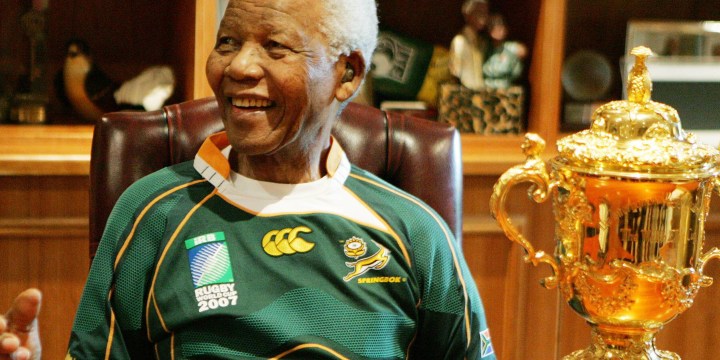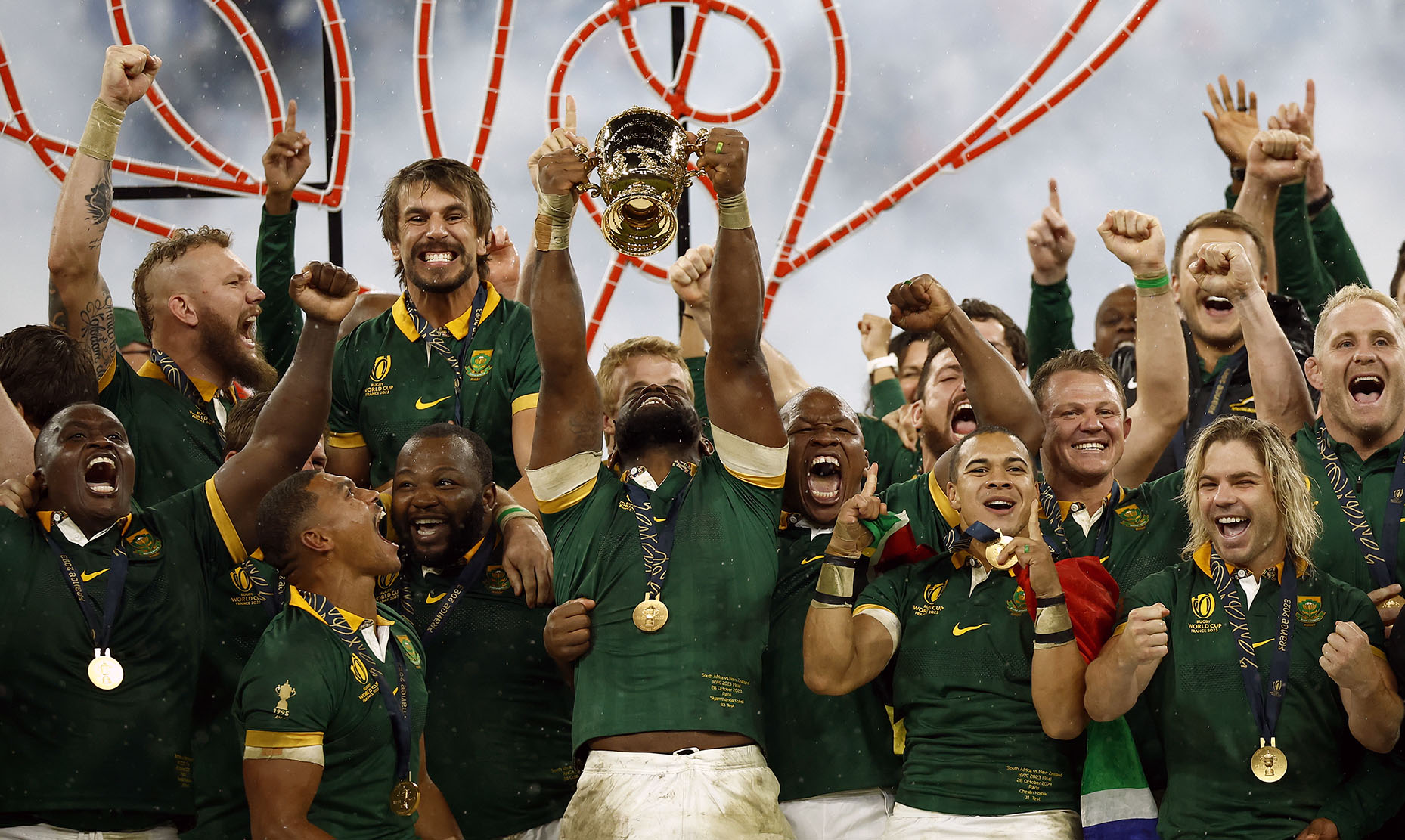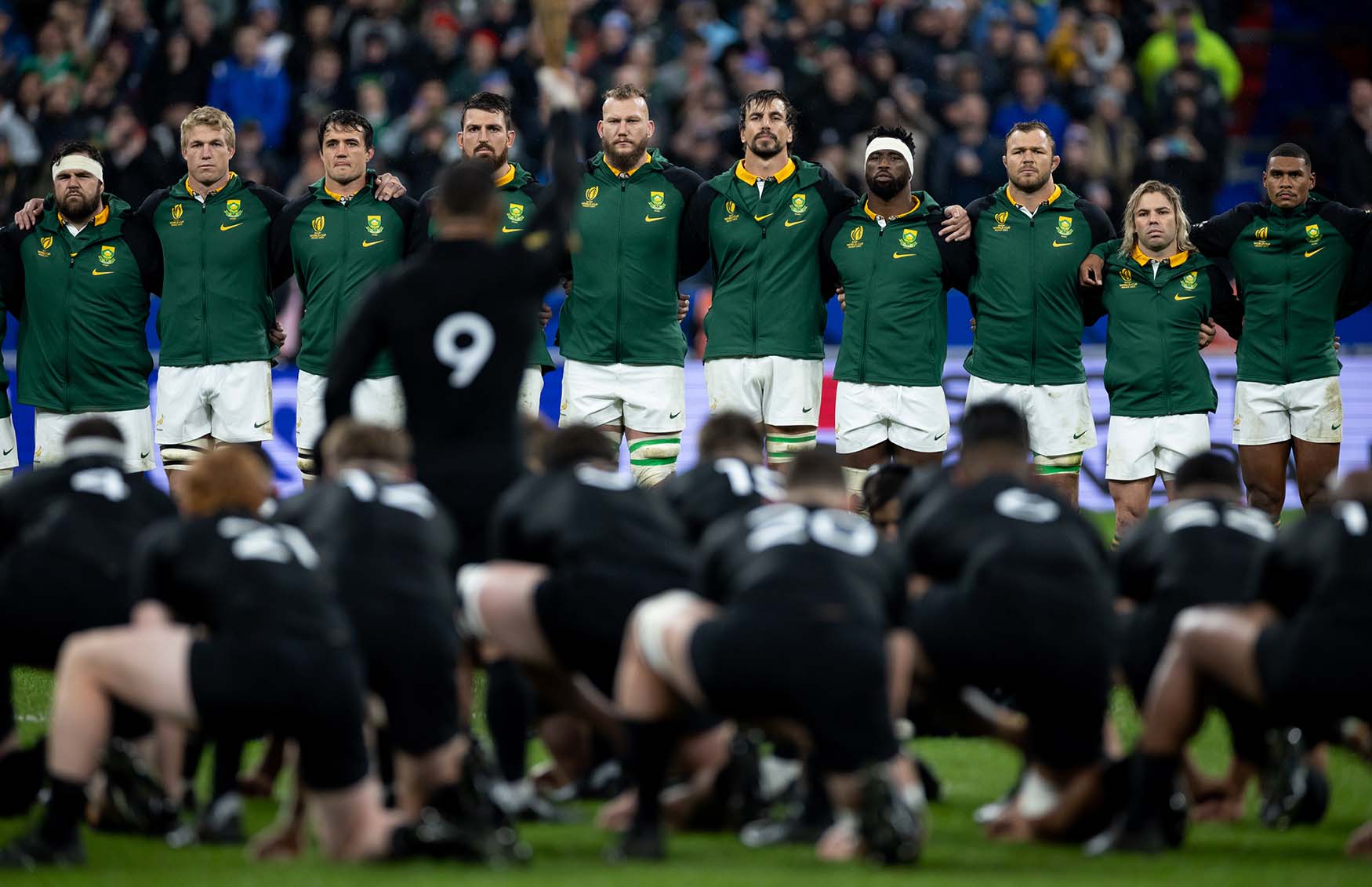AFRICA UNSCRAMBLED
Now that the World Cup is over, where can South Africa find the Springbok politicians?

The Springboks remind ordinary people that, for all the disappointments and failures of post-apartheid South Africa, the country can still win. Their combination of diversity and teamwork is what makes the Springboks so lethal, and so emblematic of what South Africa represents at its best.
The journalist John Carlin, author of Playing the Enemy: Nelson Mandela and the Making of a Nation, tells the story of how, by complete chance, he stumbled across the actor Morgan Freeman in the town of Clarksdale, Mississippi.
There, over a meal in a restaurant, he attempted to hawk his book to the laconic star of The Shawshank Redemption, only to discover that Freeman had just read it, and was a receptive listener.
Freeman, who bears an uncanny resemblance to Mandela, had been wanting to play him for a long time – it was a much bigger role for him than God in Bruce Almighty.
“His production company had even bought the rights to Mandela’s official autobiography, Long Walk to Freedom,” Carlin told Daily Maverick.
“They had been battling for years, hiring about half a dozen different screenwriters to try to reduce this great massive book to a workable script, and they couldn’t find it.”
Freeman saw the cinematic potential in the story of Mandela engineering the transformation, in the eyes of the South African public, of a brutal game played by white men into a beautiful symbol of national unity.

Springbok captain Siya Kolisi lifts the Webb Ellis trophy in Saint-Denis, Paris on 28 October 2023. (Photo: EPA-EFE / Yoan Valat)
That’s how it happened that Carlin’s book was adapted into the 2009 movie Invictus, directed by Clint Eastwood and starring Freeman as Mandela (he got everything except the accent spot on) and Matt Damon as Springbok captain Francois Pienaar.
Some panned Invictus as a Disneyfied version of the transition from apartheid while others tarred it with the slur of “Rainbowism”. But millions have seen it as a popular history of South Africa’s peaceful revolution.
Mandela always understood what he was doing. His technique was to go and speak to the players in the dressing room before the match and to tell them: “My boys, I leave the country in your hands.”
Playing in the Springbok jersey still has the power to inspire players to superhuman exertions on the field – and to remind ordinary people that for all the disappointments and failures of post-apartheid South Africa, the country can still win.
Stronger together
There is a sense in which the saying, “stronger together”, applies particularly well to the game of rugby. Each position on the field demands a different set of skills and different physical attributes.
A Cheslin Kolbe, an Ox Nche and an Eben Etzebeth can be the best in the world in their positions – and this combination of diversity and teamwork is what makes the Springboks so lethal, and so emblematic of what the country represents at its best.
Mandela’s reputation has suffered in the intervening years in the judgment of a new generation of activists who believe that the compromises of 1994 sold out the revolution and prevented the ANC from embarking on genuine transformation.

The Springboks face the All Blacks’ haka before the Rugby World Cup 2023 final at Stade de France on October 28 in Paris. (Photo: Juan Jose Gasparini / Gallo Images)
They should read Independent Africa, Emmanuel Kwaku Akyeampong’s monumental work on Africa’s first generation of founding fathers, where he starts by quoting a proverb from the Twi-speaking people of Ghana: “If you were not present, it is easy to say we didn’t fight.”
To understand how revolutionary Mandela’s approach was, one must travel back to before the 1995 Rugby World Cup when those few black people who gave a toss about rugby still supported the All Blacks, and it seemed only a matter of time before the Springbok would be binned as the emblem of the South African rugby team.
Carlin, the South African correspondent for the Independent newspaper in London in the early nineties, recalled: “Until that moment, until that tournament began, rugby was the sport of the enemy. Those great big hulking, rough, violent Afrikaners were like a sort of living metaphor of the oppression to which black people were subjected under apartheid.”
In an interview for the book, Mandela explained to Carlin the secret behind the magic: “If you want to persuade people, win their hearts… appeal to their hearts more than to their minds.”
Middle East crisis
Seeing South Africa’s World Cup win juxtaposed on Sunday with the horror in Israel and Gaza, it is crazy to think that South Africa and Palestine/Israel were once regarded as having an equal chance of reaching a peaceful resolution.
During Carlin’s time in South Africa, the Oslo process in Israel/Palestine was being negotiated at the same time as the Codesa talks at the World Trade Centre in Kempton Park outside Johannesburg. Two long-standing conflicts shared the unique opportunity of ending peacefully in the aftermath of the Cold War.
“I was asked to write a story comparing and contrasting their prospects,” said Carlin. He concluded that the odds were significantly better for South Africa because religion was not a dividing factor.
But taking a leaf out of Mandela’s book, I would say it’s the paths the leaders of Israel and Hamas have taken that turned people’s hearts to stone.
Since 1995, the Springboks have taken the Webb Ellis Cup three more times – 2019 being memorable because it was an inspirational black captain, Siya Kolisi, who hoisted the trophy, and now he has done it again.
The Mandela legacy
“It’s like a symbol of hope that, despite the chaos of the last few years, there is something good and really, really valuable, within South African society,” said Carlin, who still supports South Africa against any team in the world.
“The country can still be an example to the world in these hideous polarised times.”
The Mandela legacy was visible in how South Africans celebrated the World Cup. Huge crowds watched the matches in bars and open-air venues; shoppers garlanded Makozole Mapimpi at the supermarket; there were social media posts of kids of many colours from schools deep in the platteland proudly singing the national anthem, and just about everybody seemed to be wearing a green Springbok jersey.
But is World Cup rugby simply opium for the masses, allowing people to briefly escape the pain of failure that the successors of Mandela in the ANC have wrought – the crisis in politics and in the economy, the unemployed youth, the broken infrastructure, the corruption and violent crime?
Of course, a spirit of unity engendered by watching the Springboks win won’t make South Africa’s problems go away. To be sure, there will be no renewal unless the state and big business get serious about what needs to be done.
But whereas 1995 was followed by an expectation of top-down change, this time it feels very different. One takes heart from interactions with ordinary citizens and their postings on social media.
For many, the meaning they took from the game was that, using the Springboks as an example, change starts with believing in yourself; with self-respect and doing your best; with caring for those around you and your environment, and not taking bribes. If you are a teacher or a traffic cop or director-general, your priority should be to serve the public.
Pulane Tshabalala captured that spirit in a Facebook post: “It’s time you start serving the public as if you’re competing with the best in the world.
“It’s time you work with other races to build a champion nation. The Springboks have given us everything… Now it’s up to us.
“Let’s build a Springbok Economy. Let’s build a Springbok Society. Let’s vote for Springbok Politicians.” DM
















een twee drie = BLOK MYSELF!!
Just yesterday I thought it a brilliant idea the Springbokke participate in the 2024 elections
NO politics, just do as they did over the past years